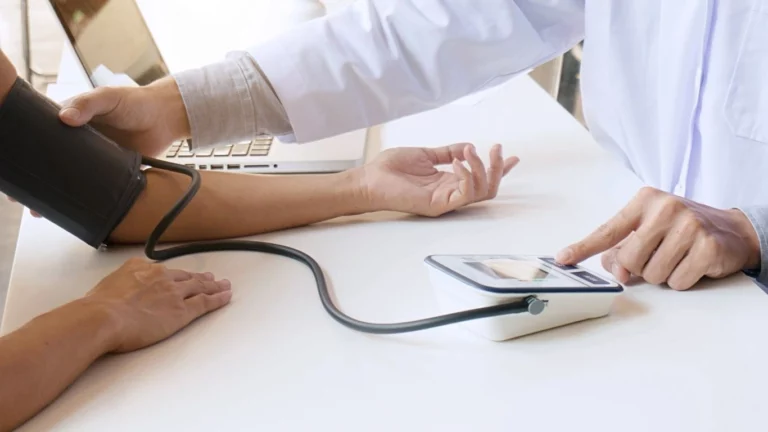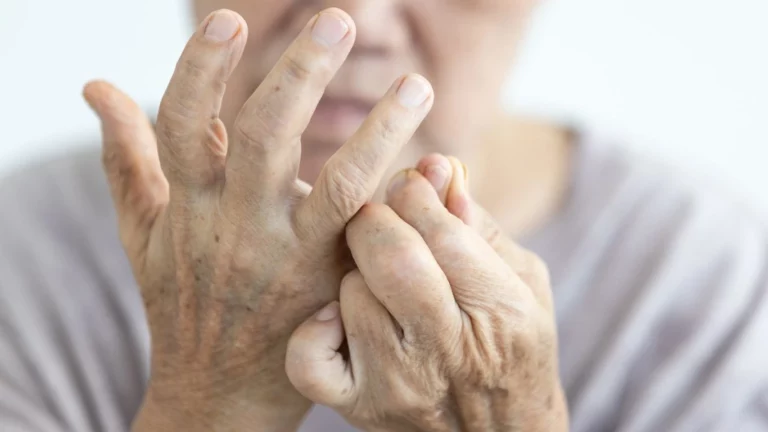Understanding the Link Between GERD and Upper Back Pain – Exploring Solutions
Uncover the connection between GERD and upper back pain and explore effective solutions for relief and management in this comprehensive guide.
Gastroesophageal Reflux Disease (GERD) is a prevalent digestive disorder characterized by the backward flow of stomach acid into the esophagus, resulting in symptoms like heartburn, regurgitation, and discomfort. While these symptoms are well-known, what many may not realize is the potential link between GERD and upper back pain. In this comprehensive guide, we delve into the relationship between GERD and upper back pain, understanding the underlying causes, and exploring effective solutions for relief and management.
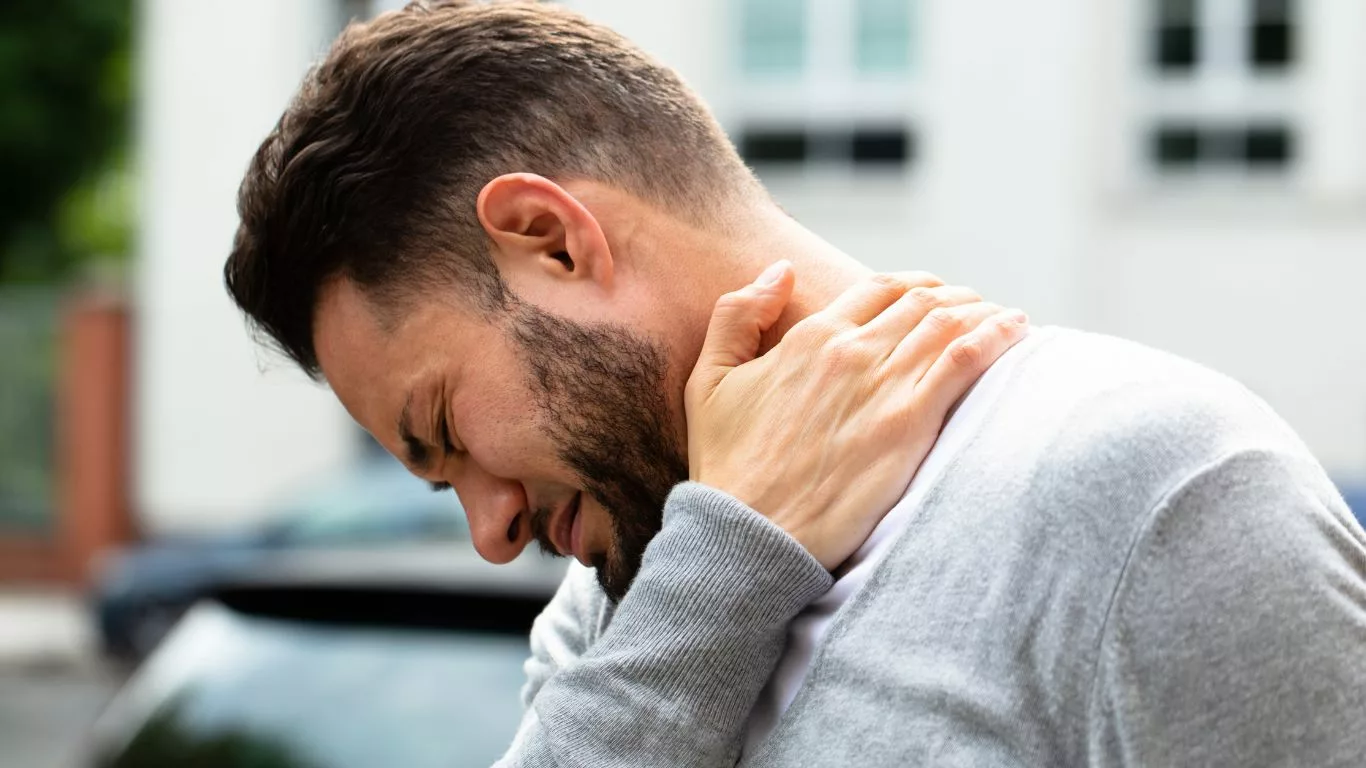
The Relationship Between GERD and Upper Back Pain
Gastroesophageal Reflux Disease (GERD) is a complex condition that extends its effects beyond the boundaries of the digestive tract. While commonly associated with symptoms like heartburn and regurgitation, GERD can also manifest as upper back pain, presenting a multifaceted interplay between digestive dysfunction and musculoskeletal discomfort.
Esophageal Irritation: A Catalyst for Discomfort
At the heart of GERD lies the regurgitation of acidic stomach contents into the delicate lining of the esophagus. This acidic assault not only triggers inflammation within the esophagus but can also extend its reach to the upper back region. The esophageal lining, sensitive to acidic exposure, responds with inflammation, leading to discomfort that radiates beyond the chest and into the upper back. This phenomenon underscores the interconnectedness of gastrointestinal distress and musculoskeletal discomfort.
Nerve Interactions: The Pathways of Pain
The intricate network of nerves that traverse the esophagus also branches out to innervate the upper back area. When GERD-induced acid exposure irritates these nerves, it sets off a cascade of signals that are interpreted by the brain as pain. This phenomenon, known as referred pain, is responsible for the perception of discomfort in areas distant from the actual source of irritation. Thus, individuals with GERD may experience upper back pain despite the primary pathology residing within the esophagus.
Muscle Tension: A Consequence of Chronic Symptoms
The chronic nature of GERD symptoms, such as recurrent heartburn and regurgitation, can induce individuals to adopt compensatory postures to alleviate discomfort. These postural adjustments often involve increased muscle tension in the upper back and neck regions as the body attempts to mitigate the effects of acid reflux. Over time, this heightened muscular activity can lead to persistent discomfort and pain in the upper back, further exacerbating the burden of GERD-related symptoms.
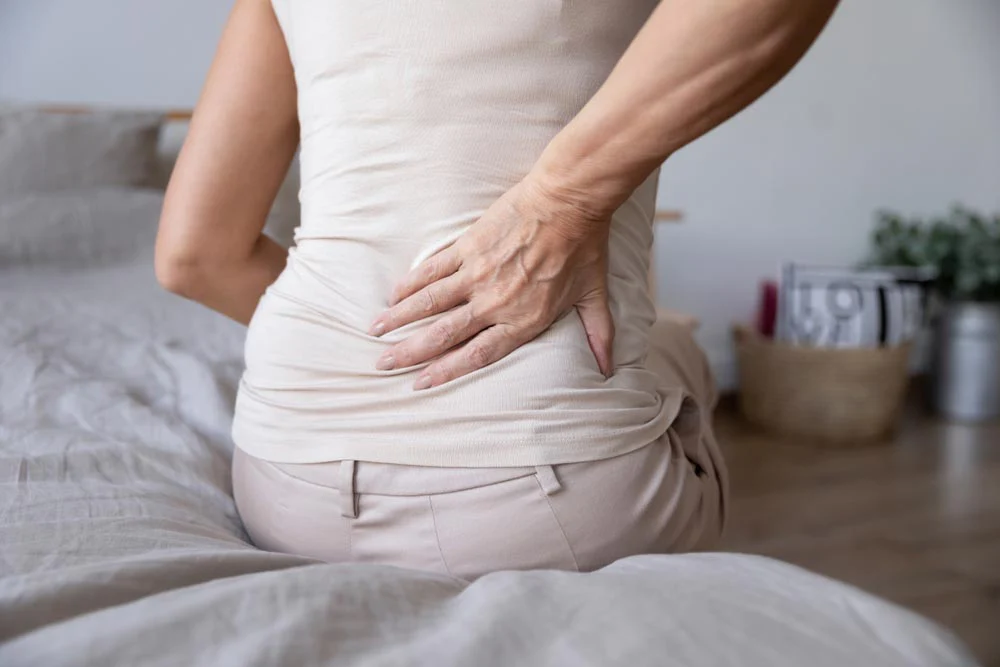
Exploring Solutions for GERD-Related Upper Back Pain
Addressing upper back pain associated with Gastroesophageal Reflux Disease (GERD) requires a multifaceted approach that targets both the underlying digestive issues and the discomfort in the affected region. Here, we delve into a range of effective solutions to consider for managing GERD-related upper back pain, encompassing lifestyle modifications, medical interventions, and holistic approaches:
GERD Management
Effective management of GERD is fundamental for alleviating associated upper back pain. Lifestyle modifications play a pivotal role in GERD management, including dietary changes, weight management, and identifying and avoiding trigger foods that exacerbate GERD symptoms. Adopting a GERD-friendly diet rich in non-acidic fruits and vegetables, whole grains, lean proteins, and healthy fats can help reduce acid reflux episodes and minimize upper back discomfort.
Medications
Pharmacological interventions, such as over-the-counter antacids, proton pump inhibitors (PPIs), and H2-receptor antagonists, are commonly prescribed to alleviate GERD symptoms and subsequently relieve upper back pain. Antacids work by neutralizing stomach acid, providing immediate but temporary relief, while PPIs and H2-receptor antagonists reduce acid production in the stomach, offering longer-lasting symptom relief. Consulting with a healthcare professional can help determine the most suitable medication regimen based on individual needs and medical history.
Postural Correction
Improving posture through targeted exercises and ergonomic adjustments can significantly alleviate muscle tension in the upper back and reduce discomfort associated with GERD-related symptoms. Simple techniques such as maintaining a neutral spine alignment while sitting and standing, engaging core muscles for support, and avoiding prolonged periods of slouching or hunching over can help distribute the load evenly across the spine, minimizing strain on the upper back muscles.
Physical Therapy
Engaging in physical therapy sessions tailored to address GERD-related upper back pain can provide long-term relief and improve overall spinal health. Physical therapists utilize a combination of exercises, stretches, manual techniques, and modalities to strengthen the muscles supporting the spine, improve flexibility, and correct postural imbalances. A personalized physical therapy program can target specific areas of discomfort, address underlying musculoskeletal issues, and enhance functional mobility, promoting optimal recovery and symptom management.
Stress Management
Chronic stress can exacerbate muscle tension and discomfort in the upper back, amplifying GERD-related symptoms. Incorporating stress-reduction techniques into daily routines, such as mindfulness meditation, deep breathing exercises, progressive muscle relaxation, and yoga, can help alleviate muscle tension and promote relaxation in the upper back region. By reducing stress levels, individuals can mitigate the impact of GERD-related upper back pain on their overall well-being and quality of life.
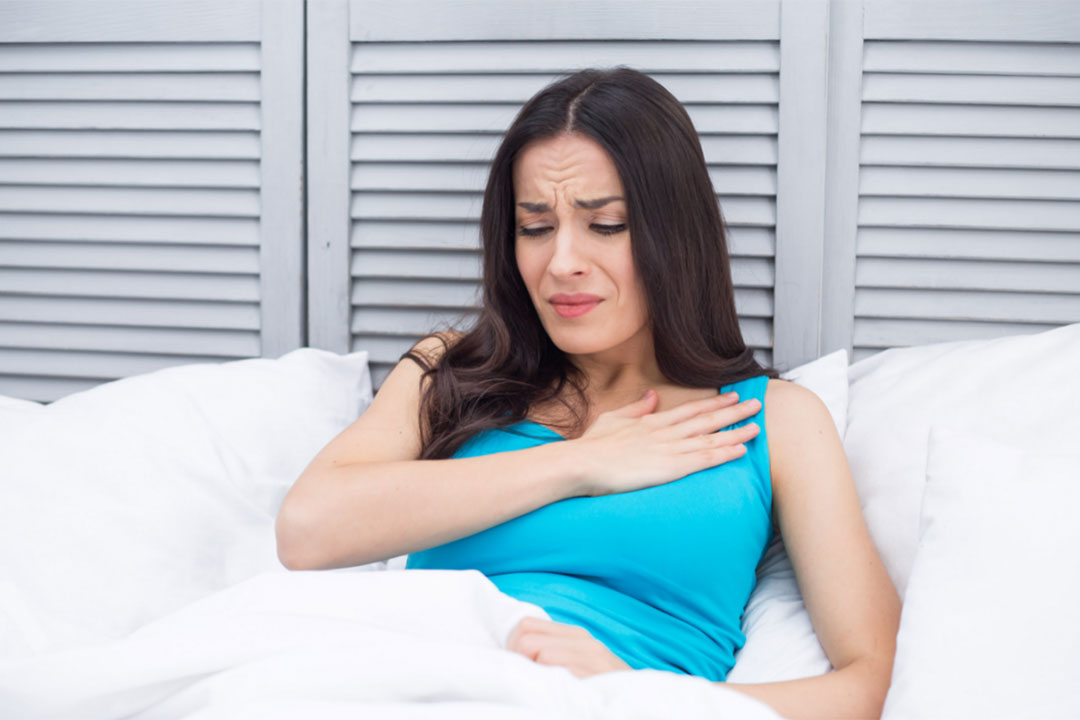
Preventing GERD-Related Upper Back Pain
Addressing GERD-related upper back pain is crucial, but taking proactive preventive measures can significantly reduce its occurrence. Here are comprehensive strategies to consider:
Adopting Healthy Eating Habits
Embracing a diet that supports digestive health is paramount in preventing GERD and its associated upper back pain. Opt for smaller, more frequent meals rather than large, heavy ones to reduce pressure on the stomach and minimize acid reflux. Steer clear of acidic and spicy foods, which can aggravate GERD symptoms, and limit or avoid caffeine and carbonated beverages, as they can increase stomach acid production. Incorporate plenty of fiber-rich fruits, vegetables, and whole grains into your diet to promote regular digestion and minimize the risk of GERD flare-ups.
Elevating the Head During Sleep
Nighttime acid reflux can contribute to upper back pain upon waking. Elevating the head of your bed or using a wedge pillow can help prevent stomach acid from flowing back into the esophagus while you sleep. By keeping your upper body elevated, gravity assists in keeping stomach acid in its rightful place, reducing the likelihood of GERD-related upper back pain in the morning. Additionally, avoid eating large meals or lying down immediately after eating, as this can exacerbate acid reflux symptoms during sleep.
Maintaining a Healthy Weight
Excess weight can exacerbate GERD symptoms and increase the risk of upper back pain. The added pressure on the abdomen from excess fat can push stomach contents upward, leading to more frequent and severe acid reflux episodes. To maintain a healthy weight, prioritize regular physical activity and follow a balanced diet rich in nutritious foods. Aim for a combination of cardiovascular exercise, strength training, and flexibility exercises to support overall health and minimize the risk of GERD-related upper back pain.
Quitting Smoking
Smoking weakens the lower esophageal sphincter (LES), the muscle responsible for preventing stomach acid reflux. Additionally, smoking increases stomach acid production and reduces saliva production, which neutralizes acid in the esophagus. Quitting smoking is essential in improving GERD symptoms and reducing associated upper back pain. Seek support from healthcare professionals, smoking cessation programs, or support groups to quit smoking successfully. By eliminating this harmful habit, you not only improve your digestive health but also reduce the risk of numerous other health complications associated with smoking.

Conclusion
Understanding the relationship between GERD and upper back pain is crucial for effective management and relief. By addressing GERD symptoms through lifestyle modifications, medications, and targeted interventions, individuals can alleviate upper back pain and improve their overall quality of life. Additionally, adopting preventive measures can help minimize the occurrence of GERD-related upper back pain, promoting long-term digestive health and well-being.
Appendices
References
For further exploration of the topic of GERD and its associated symptoms, consider reviewing the following references:
- Richter, JE. (2005). Gastroesophageal reflux disease and its complications. In: Feldman M, Friedman LS, Brandt LJ, eds. Sleisenger and Fordtran’s Gastrointestinal and Liver Disease. 8th ed. Philadelphia, PA: Saunders Elsevier; chap 41.
- Vakil N, van Zanten SV, Kahrilas P, Dent J, Jones R, Global Consensus Group. (2006). The Montreal definition and classification of gastroesophageal reflux disease: a global evidence-based consensus. Am J Gastroenterol, 101(8):1900-20; quiz 1943.
- Katz PO, Gerson LB, Vela MF. (2013). Guidelines for the diagnosis and management of gastroesophageal reflux disease. Am J Gastroenterol, 108(3):308-28. Read Article
FAQs
Here are some frequently asked questions about GERD and its association with upper back pain:
- Is upper back pain a common symptom of GERD? Yes, upper back pain can be a manifestation of GERD due to esophageal irritation, nerve interactions, and muscle tension.
- How can I alleviate upper back pain associated with GERD? Managing GERD through lifestyle modifications, medications, postural correction, and stress management techniques can help alleviate associated upper back pain.
- What preventive measures can I take to minimize GERD-related upper back pain? Adopting healthy eating habits, elevating the head during sleep, maintaining a healthy weight, and quitting smoking can help prevent GERD-related upper back pain.
Disclaimer: The information provided in this article is for educational and informational purposes only. It is not intended to be a substitute for professional medical advice, diagnosis, or treatment. Always seek the advice of your physician or other qualified health provider with any questions you may have regarding a medical condition. Never disregard professional medical advice or delay in seeking it because of something you have read in this article. Reliance on any information provided in this article is solely at your own risk.

Camellia Wulansari is a dedicated Medical Assistant at a local clinic and a passionate health writer at Healthusias.com. With years of hands-on experience in patient care and a deep interest in preventive medicine, she bridges the gap between clinical knowledge and accessible health information. Camellia specializes in writing about digestive health, chronic conditions like GERD and hypertension, respiratory issues, and autoimmune diseases, aiming to empower readers with practical, easy-to-understand insights. When she’s not assisting patients or writing, you’ll find her enjoying quiet mornings with coffee and a medical journal in hand—or jamming to her favorite metal band, Lamb of God.


